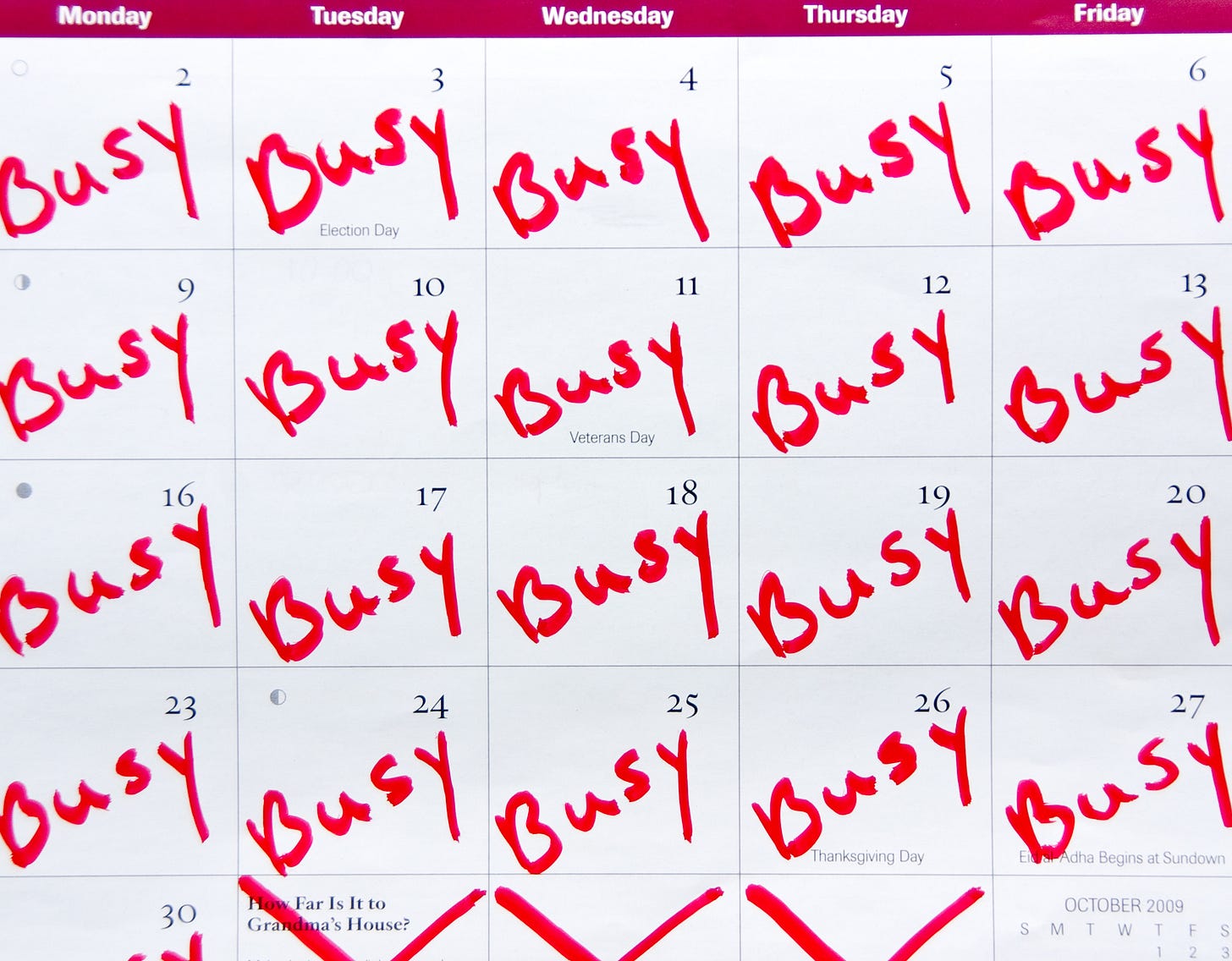The 30 min interview for people with busy calendars
What I've learned interviewing critical hires over the past decade
If you’re reading this, the following will probably ring true:
You work in tech, and you’re a busy person, with endless appointments on your calendar. 6-8 hours of meetings followed by 2-3 hours of email every day seems to be the usual thing
You are constantly being asked to interview new people for your startup/company
You’re told, and you believe, that having great talent at your company is incredibly important. And if you make a bad hire, you will be cursed for months and maybe years until that person is managed out (which sometimes, unfortunately, never happens)
If it’s on your direct team, you might have the luxury of a long interview. This might be an hour+ where you take them to lunch, have them do a presentation, and do 1:1s. Particularly if they are an exec hire
However, even more likely, you are just part of a longer interview loop and you’re booked 30-45 minutes to assess and ultimately offer an opinion. If you are the CEO or a VC, this is often your situation — you can stop the train, but otherwise, they will probably hire this person
So the question is: How do you form an accurate assessment of a person within 30 minutes?
In a way, this ought to be easy. After all, you might ask, how many SECONDS do you need to talk to a person (in a work or social setting) before you decide if they are smart or not? This is a favorite dinner party question, because the answer is inevitably kind of rude and inappropriate — it’s probably 15 seconds? 30 seconds? Not a long time before we all make up our minds. Interviewing is like this, but of course because you are assessing for more than raw horsepower, but actual skills, you need a bit more time. But I think 30 minutes is more than enough.
Focus on high “information per minute” questions
I’ve spent over a decade interviewing very senior people (and junior people) in my role in venture capital, and at Uber. Sometimes I interview people where I know the discipline well, like marketing/growth, and sometimes I’m interviewing people for roles where I have no clue.
The biggest waste of time is to ask questions where you can’t say “hire” or “no hire” based on the response. This is why long windup stories detailing their every career move is low information per minute, and not useful. This is why I’m mostly negative on using culture fit as a strong indicator — everyone on the interview loop will have slightly different POVs, and ultimately you won’t ever hire someone on culture fit alone. Same with the obligatory, “why are you interested in this role?” (Yes sometimes someone will say something that instantly filters them out, but let the recruiter ask this one — you should focus on the deep skills assessment)
The best interview questions filter people out very efficiently. This is what you want. So what are the kinds of questions that filter?
Here are some of the “super questions” I always try to fit in:
The infinite depth question. For every job/industry, there ought to be a class of questions that are so open-ended, and so deep, that the candidate might take days or weeks to give a complete answer if they are actually an expert. For marketing, this might be — “tell me how you would grow Discord (or pick your app) by 3x over the next year?” The right answer might break down acquisition versus retention, their current go-to-market, what channels might make sense, etc. And then how to execute the strategy, timelines, and so on. For a non-technical person talking to an AI person, I might ask, “I type something into ChatGPT and hit enter. Tell me what happens next?” The infinite depth question reveals a lot about the comprehensiveness of knowledge they have in their industry — if you keep asking why/why/why and they can’t answer, eventually you understand the limits of what they know
Keep reading with a 7-day free trial
Subscribe to @andrewchen to keep reading this post and get 7 days of free access to the full post archives.

